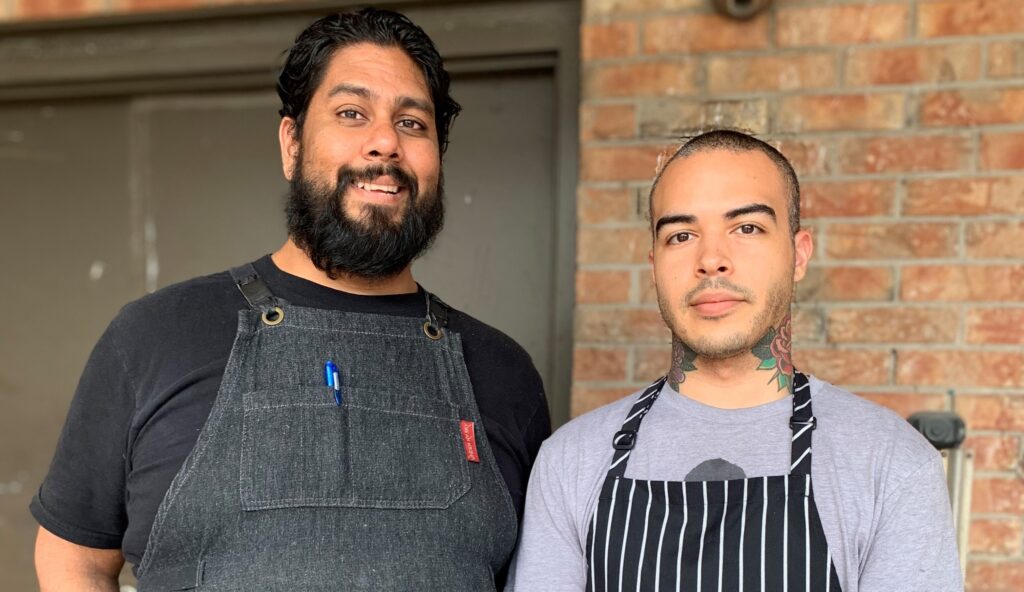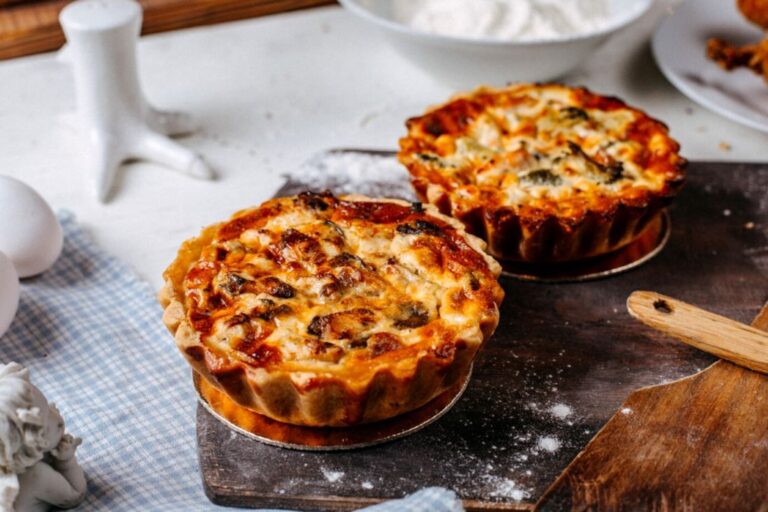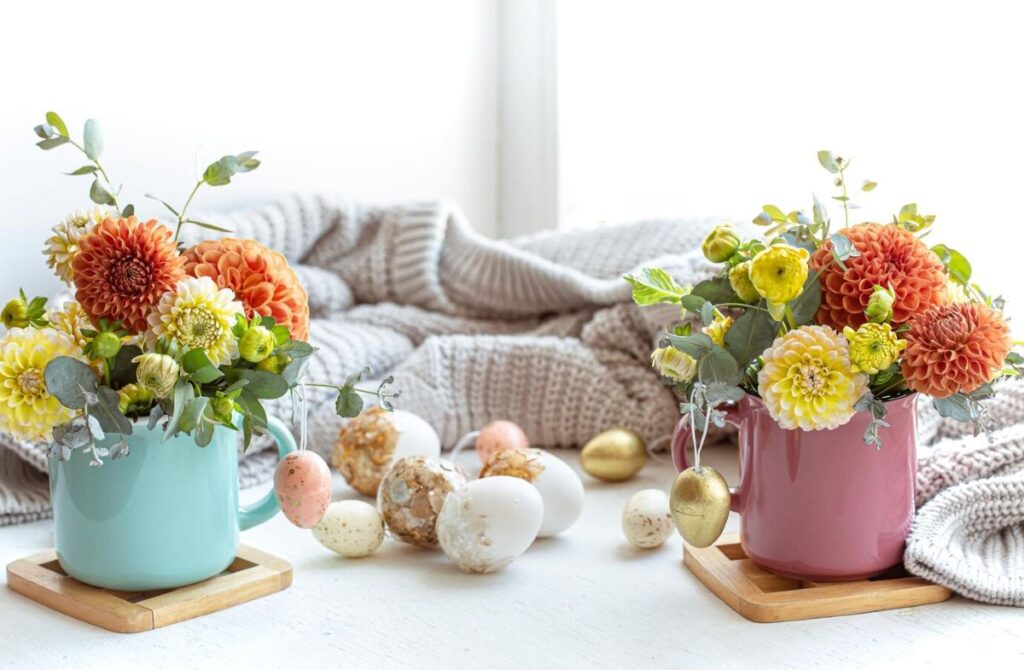Photo courtesy of Nicole Lee.
Nestled in Markham’s J-Town among other Japanese exports and foodie delights, Tanuki Restaurant was opened in July 2020 by chefs and owners Chris Samaroo and John-Francis Dugas.
Boasting a rotating brunch menu on the weekends as well as permanent offerings of comfort foods, Tanuki (named after the Japanese raccoon dog) spins Japanese flavours with fresh ingredients in inventive dishes with names like “Bathing Phoenix Karaage” and “Blessing of the Old Ones Hambagu.”
The two chefs talked about their unique culinary journey into East–West fusion and their experiences opening a new restaurant during a pandemic.
How did your individual culinary journeys begin?
Chris: I went to George Brown directly after high school, and then after George Brown, I did a bunch of small stints in a bunch of hotels and restaurants around the city. I did a formal government’s apprenticeship, so I would spend six months at one restaurant that I wanted to acquire a skill at—seafood, Asian cuisine, hotel cooking, banquet cooking. I spent six months there, and then I’d move on to other restaurants. I did that for a few years until my apprenticeship was finished, and then I joined the InterContinental on Bloor. I worked my way up from a second cook until about when I was a chef de partie. And then I transferred over to the other InterContinental while at the same time working at a bunch of other hotels. And I worked my way up from there to restaurant chef at the InterContinental.
John-Francis: Mine was fairly similar. I did a two-year program at George Brown, and then after that, I worked at a couple of different restaurants around Toronto. A couple of years later, I transferred to the InterContinental Hotel where I met chef Chris. I really enjoyed working with him and I guess we have a good work relationship that we’ve developed over the years. I just continued that and we both transferred to the InterContinental on Bloor Street and worked there together for many years until we decided to open up this restaurant.
Where did the inspiration for Tanuki Restaurant come from? Why did you pick Japanese cuisine to be your focus and J-Town to be your location?
C: John and I were both raised in Markham [and] Markham has a strong Asian community. We were kind of hanging out [in] downtown, but on our days off or where we actually wanted to eat was around here. And one of our friends that we’ve known for a long time, Cole, he owns a Japanese bakery in J-Town. He’s known that we were looking for a location where we could open a restaurant, and he was interested in us because he’s known us for a long time. And the Japanese cuisine — we’ve been to Japan many times. We have a lot of Japanese friends. We like the flavours. We like the cooking styles. So, it was just like a natural mesh of our skills and our palates.
What was it like opening a restaurant in the middle of the pandemic with rolling lockdowns?
C: Exciting. When we first decided to open a restaurant in the middle of the lockdown, we kind of thought we would be like a small, slow-ish takeout place. It would be a staff of just John and I, and maybe one other person. But then, we kind of [threw] out a couple tables on this patio that we kind of stole, and people started flocking to the tables. A couple of weeks in, we have a full-on staff. We have like 12 people working for us — dishwasher, full kitchen, full outdoor, full indoor. It turned into a whole busy restaurant overnight. Maybe a couple months later, lockdown increased, and everything went away instantly. Then we’d have to slowly build it up again. We were doing well again, and then second lockdown happened, and everything went away again. So, it was kind of like a compilation of like starting and stopping and re-starting and re-stopping. It kind of pulls out your ingenuity. But, we’re still here, so it’s been fine.
J-F: Yeah. It’s been a lot of adapting and changing on the fly. We’ve changed our menus almost on a monthly basis, just trying to adapt with what the customers are looking for.
How do you find ideas for brunch menus each week? And how do you think of the creative dish names?
C: We get that question a lot. Truth be told, we just get hammered and yell ideas at each other. [Laughs] We look a lot at trends—a lot of trends in the city, a lot of trends that are going around — and we try to blend those trends with Japanese cuisine. Japanese [have] a wide plethora of ideas and foods that they eat and blending those ideas with what’s trendy is kind of a really fun part. We go to the markets every week, and we see what’s fresh or what’s really nice, what season it is, and we take those ideas and we bounce ideas off each other with our palates and what we like to eat. And that’s how we get to the actual dishes.
J-F: I think social media and Instagram is a big influence now, too. Everything is very visual these days. Even amateur cooks are innovating, trying new stuff at home. I look at that a lot and it’s pretty interesting. You get a lot of good ideas from there.
What are your general philosophies about food?
C: General philosophies about food? It’s kind of archetypal, actually. [It] feels comical. We try to find the nicest, freshest ingredients that we can. We try to find ingredients that aren’t too expensive because we want to keep our price points within a certain area for the audience that we have. We’ll generally overlook the finest, nicest pieces of meats or the most rare vegetables and we’ll try to find vegetables that are really nice, in season, and more cost-effective, and then work really hard to bring life into them while letting them shine on their own.
J-F: Yeah. I think Toronto in general has kind of moved away from the very fine dining scene where you’re paying for really expensive ingredients, cooked to the highest level possible and then plated very intricately. I think people now—or at least me personally—I think people want to see more hearty food, casual fare. You’re just coming to hang out with your friends and enjoy a good meal, but it’s not like super refined, you know what I mean? Just a nice quality meal, plated simply, made with fresh ingredients.
Rose Ho | Assistant Editor










